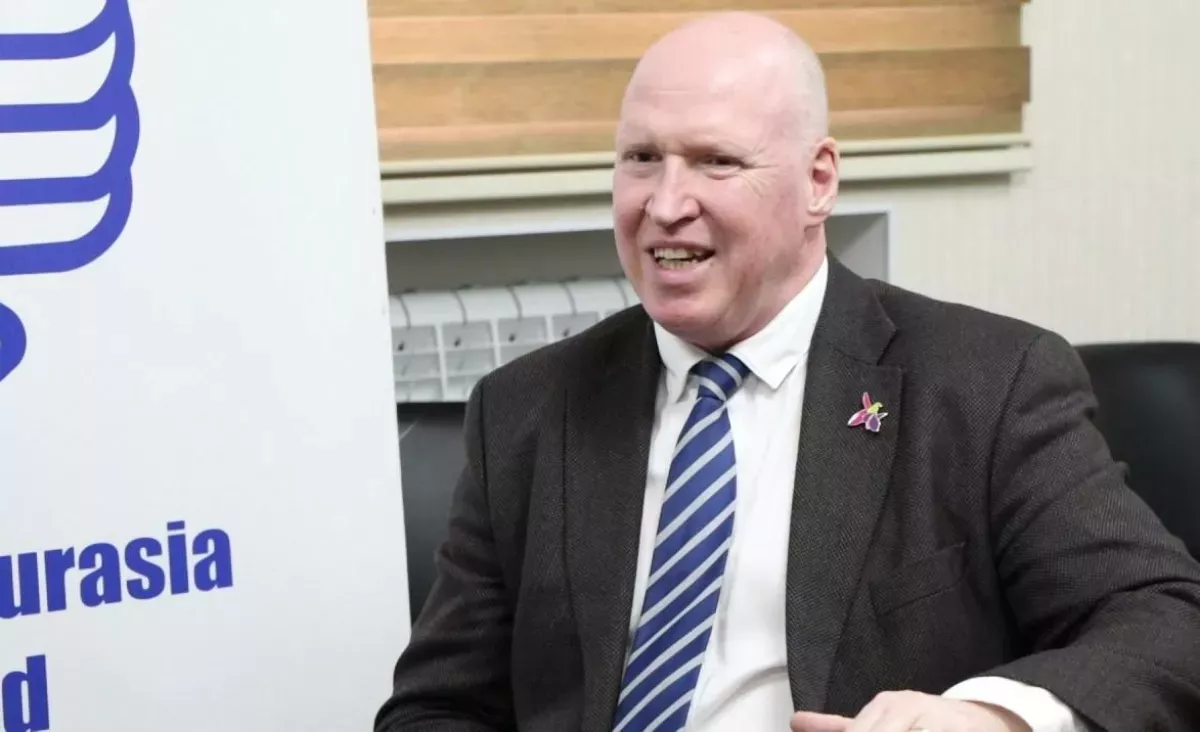Trump and Azerbaijan: What will the next four years hold? Expert opinions
With the new (or rather, returning) US president set to take office soon, questions arise about the policies of the upcoming administration towards various regions and countries. The South Caucasus and Azerbaijan are no exception, particularly given the often strained relations between Baku and Washington under the current Democratic administration. This dynamic has largely been influenced by the active lobbying of pro-Armenian groups in the Senate, Congress, the State Department, and even within the White House.
However, starting in January 2025, this situation could change dramatically. Traditionally, Republicans have been less inclined to interfere in the affairs of countries that do not directly challenge the core interests of the United States. Furthermore, Donald Trump has repeatedly emphasized that during his second term, he intends to focus primarily on addressing domestic issues related to America’s development and prosperity.
Azerbaijan continues its economic engagement with Western countries and Israel, which aligns with the interests of Republicans focused on the security of America's key international partners. It is also important to remember that during the July media forum in Shusha, President Ilham Aliyev clearly expressed his support for then-candidate Donald Trump. He reminded the audience that during Trump's first term, the US did not engage in wars: "America did not start wars under him, there was no Vietnam, Korea, Yugoslavia, Afghanistan, Libya, Iraq, Syria – the list could be continued. It was a period in which it didn't happen. Well, it is probably something deserving great respect."
Furthermore, the president highlighted Trump’s clear stance on traditional values. "I think that the absolute majority of the Azerbaijani people not only share this position, but actively promote it and put it into practice," the president noted.
After Donald Trump was elected US president, President Ilham Aliyev sent a congratulatory letter to the American leader, emphasizing that the Republic of Azerbaijan attaches great importance to the comprehensive development of relations with the United States. He also reminded Trump that during his first presidential term, the US placed significant focus on strengthening friendship and cooperation with Azerbaijan and consistently supported Azerbaijan’s energy strategy.
An additional encouraging sign was a recent phone call between Aliyev and Trump. During their conversation, Aliyev expressed hope that Trump’s presidency would play an even more significant role in ensuring global security.
Given this context, are there grounds to believe that Azerbaijan-US relations may improve and return to a more constructive level of cooperation? And, more broadly, what will Washington’s policy toward the region look like over the next four years?
These questions were answered by foreign experts for Caliber.Az.

American analyst, geopolitical and security expert, and editor-in-chief of The Washington Outsider Irina Tsukerman believes that the notion that the Armenian lobby will have less influence on Republicans than on Democrats is generally accurate.
"However, in two years, Republicans in Congress are likely to lose power, as usually happens when the same party controls both the White House and Congress. Therefore, everything that needs to be done should be done within these two years.
It is also true that Trump is facing multiple crises in addition to his campaign promises regarding domestic issues. However, this does not mean that the Armenian lobby will stop working, nor will pro-Russian and pro-Iranian interests, concerned about Baku’s success for their own reasons. This means there should be no place for complacency in Baku's policy; on the contrary, now is the time to mobilize, build relationships with Trump’s cabinet and Congress, and invest in strong, long-term alliances with both officials and ordinary Americans who will benefit from constructive global relations," the expert explains.
She reminded that the Armenian lobby, through conservative religious groups, actively courted Trump during the election campaign, and we saw that he was the first to mention the issue of Armenians leaving Nagorno-Karabakh and other related problems that had not particularly interested him before.
"This happened not because the demographics of California were so crucial; the Armenian population of California was not decisive for Trump’s victory; it’s not one of the swing voter groups. Rather, the potential success of the lobby lies in its alliance with evangelicals and other Trump supporters. This could shift foreign policy priorities within the Republican Party, especially if Armenians make as concerted an effort to engage Republicans now that it’s clear they are in power, as they had previously done with the Democrats.
Thus, Azerbaijan needs to be aware of these lobbying campaigns and take appropriate steps to:
-
Stay ahead of these efforts at all levels, not just at the level of the head of state;
-
Expose the hidden goals of the Armenian lobby, their ties with hostile entities, and their generally dishonest and manipulative tactics—using new channels where these lobbies have not yet gained influence;
-
Invest in countering fake campaigns created by these lobbies and religious groups, focusing on building relationships with these groups at an unofficial level, and more actively participating in interfaith cooperation with US-based organizations.
The conditions for this, with the Republican Party fully controlling Congress, are ideal right now and are unlikely to improve over time," the analyst notes.
Finally, she says, the role of public diplomacy should not be underestimated.
"Perhaps Azerbaijan doesn’t have as many compatriots in the US as the Armenians and their lobby do, but it has the opportunity to build relationships with Americans based on shared interests in energy, education, traditional values, culture, economic diversification, science and technology, and much more. It is time to take relations beyond Washington and expand them to local areas within the US; such activity will create positive publicity and encourage American voters to desire improved relations and demand this from their government at all levels," Tsukerman assures.

As Irish political scientist and historian Patrick Walsh believes, it is true that Trump’s presidency is largely focused on domestic affairs rather than foreign events.
"Currently, Republicans hold the majority in both the Senate and the House of Representatives, as well as in the Supreme Court. Now is the time for internal actions, before this situation could change after the midterm elections in two years. However, Trump’s problem is that Biden’s presidency leaves him with many foreign policy issues that are very dangerous and cannot be ignored. Along with Ukraine and the Middle East (now including Syria), the situation in Georgia holds the seeds of disaster. This could have consequences for the entire South Caucasus if it escalates. It will be interesting to see how Trump handles this, as the situation is mainly destabilized by European influence, not Washington," the political scientist noted.
According to him, many countries hope Trump will calm the situation, but the US foreign policy establishment, the "blot" as it was called during Obama’s years, will be very interested in supporting anti-government forces similar to the Kyiv Maidan.
"As for Armenia, the diaspora will continue its work in California and Washington, pushing the usual version of 'ethnic cleansing and genocide' against Baku. While this has not had much effect so far, the Biden administration, with its strong 'humanitarian' element, is provoking bad relations between the US and Azerbaijan. This will not disappear, but it is unlikely to have much impact on relations under Trump. He deals with foreign states as a businessman, always striving to secure the best deal for the US. He is not interested in liberal ideology, which he considers false. I doubt that he will be very concerned with the Armenia-Azerbaijan peace process, simply because there are many other dangerous problems in the world that are more important to the strategic interests of the US. I’ve noticed that Armenian diaspora media have realized this and are now more focused on obtaining moral and other forms of support from Brussels, rather than Washington," the historian stated.
Trump also aims to delegate European problems to the Europeans, he added.
"However, the danger for Washington always lies in the possibility of overestimating the EU and the necessity of US support. It is often forgotten that this is how the crisis in Ukraine began in 2014, after the Europeans failed to fulfil their commitments, and the US foreign policy establishment, led by Victoria Nuland, intervened and orchestrated the Maidan coup.
So, in short, Trump will have a tough job as a peacemaker, and in a world that is in such a state, anything is possible," concludes Walsh.








